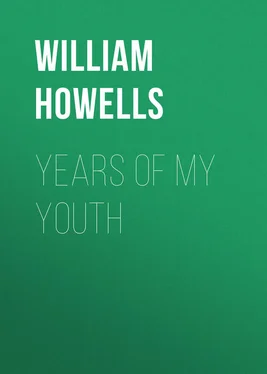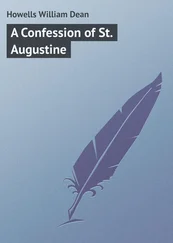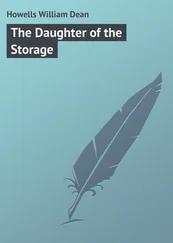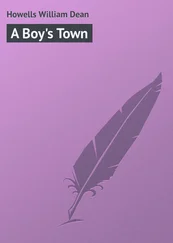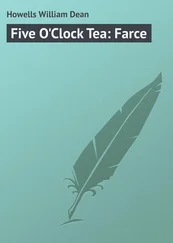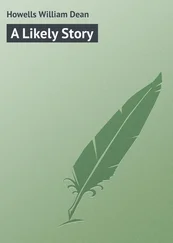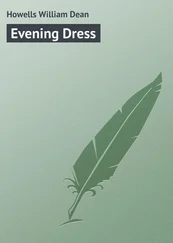William Howells - Years of My Youth
Здесь есть возможность читать онлайн «William Howells - Years of My Youth» — ознакомительный отрывок электронной книги совершенно бесплатно, а после прочтения отрывка купить полную версию. В некоторых случаях можно слушать аудио, скачать через торрент в формате fb2 и присутствует краткое содержание. Жанр: foreign_prose, на английском языке. Описание произведения, (предисловие) а так же отзывы посетителей доступны на портале библиотеки ЛибКат.
- Название:Years of My Youth
- Автор:
- Жанр:
- Год:неизвестен
- ISBN:нет данных
- Рейтинг книги:5 / 5. Голосов: 1
-
Избранное:Добавить в избранное
- Отзывы:
-
Ваша оценка:
- 100
- 1
- 2
- 3
- 4
- 5
Years of My Youth: краткое содержание, описание и аннотация
Предлагаем к чтению аннотацию, описание, краткое содержание или предисловие (зависит от того, что написал сам автор книги «Years of My Youth»). Если вы не нашли необходимую информацию о книге — напишите в комментариях, мы постараемся отыскать её.
Years of My Youth — читать онлайн ознакомительный отрывок
Ниже представлен текст книги, разбитый по страницам. Система сохранения места последней прочитанной страницы, позволяет с удобством читать онлайн бесплатно книгу «Years of My Youth», без необходимости каждый раз заново искать на чём Вы остановились. Поставьте закладку, и сможете в любой момент перейти на страницу, на которой закончили чтение.
Интервал:
Закладка:
I had no such regrets concerning the young wild ducks, which, indeed, I had no such grievous accident with. I left their mother to flounder and flutter away as she would, and took to the swamp where her young sought refuge from me. There I spent half a day wading about in waters that were often up to my waist and full of ugly possibilities of mud-turtles and water-snakes, trying to put my hand on one of the ducklings. They rose everywhere else, and dived again after a breath of air; but at last one of them came up in my very grasp. It did not struggle, but how its wild heart bounded against my hand! I carried it home to show it and boast of my capture, and then I took it back to its native swamp. It dived instantly, and I hope it found its bereaved family somewhere under the water.
The center of our life in the cabin was, of course, the fireplace, whose hugeness and whose mighty fires remained a wonder with us. There was a crane in the chimney and dangling pothooks, and until the cooking stove could be set up in an adjoining shed the cooking had to be done on the hearth, and the bread baked in a Dutch oven in the hot ashes. We had always heard of this operation, which was a necessity of early days; and nothing else, perhaps, realized them so vividly for us as the loaf laid in the iron-lidded skillet, which was then covered with ashes and heaped with coals.
I am not certain that the bread tasted any better for the historical romance of its experience, or that the corn-meal, mixed warm from the mill and baked on an oak plank set up before the fire, had merits beyond the hoecake of art; but I think there can be no doubt that new corn grated from the cob while still in the milk, and then molded and put in like manner to brown in the glow of such embers, would still have the sweetness that was incomparable then. When the maple sap started in February, we tried the scheme we had cherished all winter of making with it tea which should be in a manner self-sugared. But the scheme was a failure – we spoiled the sap without sweetening the tea.
We sat up late before the big fire at night, our faces burning in the glow, and our backs and feet freezing in the draught that swept in from the imperfectly closing door, and then we boys climbed to our bed in the loft. We reached it by a ladder, which we should have been glad to pull up after us as a protection against Indians in the pioneer fashion; but, with the advancement of modern luxury, the ladder had been nailed to the floor. When we were once aloft, however, we were in a domain sacred to the past. The rude floor rattled and wavered loosely under our tread, and the window in the gable stood open or shut at its own will. There were cracks in the shingles, through which we could see the stars, when there were stars, and which, when the first snow came, let the flakes sift in upon the floor.
Our barrels of paper-covered books were stowed away in that loft, and, overhauling them one day, I found a paper copy of the poems of a certain Henry W. Longfellow, then wholly unknown to me; and while the old grist-mill, whistling and wheezing to itself, made a vague music in my ears, my soul was filled with this new, strange sweetness. I read the “Spanish Student” there, and the “Coplas de Manrique,” and the solemn and ever-beautiful “Voices of the Night.” There were other books in those barrels, but these spirited me again to Spain, where I had already been with Irving, and led me to attack fitfully the old Spanish grammar which had been knocking about our house ever since my father bought it from a soldier of the Mexican War.
But neither these nor any other books made me discontented with the boy’s world about me. They made it a little more populous with visionary shapes, but that was well, and there was room for them all. It was not darkened with cares, and the duties of it were not many. By this time we older boys had our axes, and believed ourselves to be clearing a piece of woods which covered a hill belonging to the milling property. The timber was black-walnut and oak and hickory, and I cannot think we made much inroad in it; but we must have felled some of the trees, for I remember helping to cut them into saw-logs with the cross-cut saw, and the rapture we had in starting our logs from the brow of the hill and watching their whirling rush to the bottom. We experimented, as boys will, and we felled one large hickory with the saw instead of the axe, and scarcely escaped with our lives when it suddenly split near the bark, and the butt shot out between us. I preferred buckeye and sycamore trees for my own axe; they were of no use when felled, but they chopped so easily.
They grew abundantly on the island which formed another feature of our oddly distributed property. This island was by far its most fascinating feature, and for us boys it had the charm and mystery which have in every land and age endeared islands to the heart of man. It was not naturally an island, but had been made so by the mill-races bringing the water from the dam, and emptying into the river again below the mills. It was flat, and half under water in every spring freshet, but it had precious areas grown up to tall ironweeds, which, withering and hardening in the frost, supplied us with the darts for our Indian fights. The island was always our battle-ground, and it resounded in the long afternoons with the war-cries of the encountering tribes. We had a book in those days called Western Adventure , which was made up of tales of pioneer and frontier life, and we were constantly reading ourselves back into that life. This book, and Howe’s Collections for the History of Ohio , were full of stories of the backwoodsmen and warriors who had made our state a battle-ground for nearly fifty years, and our life in the log cabin gave new zest to the tales of “Simon Kenton, the Pioneer,” and “Simon Girty, the Renegade”; of the captivity of Crawford, and his death at the stake; of the massacre of the Moravian Indians at Gnadenhütten; of the defeat of St. Clair and the victory of Wayne; of a hundred other wild and bloody incidents of our annals. We read of them at night till we were afraid to go up the ladder to the ambuscade of savages in our loft, but we fought them over by day with undaunted spirit. With our native romance I sometimes mingled from my own reading a strain of Old World poetry, and “Hamet el Zegri” and the “Unknown Spanish Knight,” encountered in the Vega before Granada on our island, while Adam Poe and the Indian chief Bigfoot were taking breath from their deadly struggle in the waters of the Ohio.
X
When the spring opened we broke up the sod on a more fertile part of the island, and planted a garden there beside our field of corn. We planted long rows of sweet-potatoes, and a splendid profusion of melons, which duly came up with their empty seed-shells fitted like helmets over their heads, and were mostly laid low the next day by the cutworms which swarmed in the upturned sod. But the sweet-potatoes had better luck. Better luck I did not think it then; their rows seemed interminable to a boy set to clear them of purslane with his hoe; though I do not now imagine they were necessarily a day’s journey in length. Neither could the corn-field beside them have been very vast; but again reluctant boyhood has a different scale for the measurement of such things, and perhaps if I were now set to hill it up I might think differently about its size.
I dare say it was not well cared for, but an inexhaustible wealth of ears came into the milk just at the right moment for our enjoyment. We had then begun to build our new house, and for this we were now kiln-drying the green oak flooring-boards. We had built a long skeleton hut, and had set the boards upright all around it and roofed it with them, and in the middle of it we had set a huge old cast-iron stove, in which we kept a roaring fire. The fire had to be watched night and day, and it often took all the boys of the neighborhood to watch it, and to turn the boards. It must have been cruelly hot in that kiln; but I remember nothing of that; I remember only the luxury of the green corn, spitted on the points of long sticks and roasted in the red-hot stove; we must almost have roasted our own heads at the same time. But I suppose that if the heat within the kiln or without ever became intolerable, we escaped from it and from our light summer clothing, reduced to a Greek simplicity, in a delicious plunge in the river. We had our choice of the shallows, where the long ripple was warmed through and through by the sun in which it sparkled, or the swimming-hole, whose depths were almost as tepid, but were here and there interwoven with mysterious cool under-currents.
Читать дальшеИнтервал:
Закладка:
Похожие книги на «Years of My Youth»
Представляем Вашему вниманию похожие книги на «Years of My Youth» списком для выбора. Мы отобрали схожую по названию и смыслу литературу в надежде предоставить читателям больше вариантов отыскать новые, интересные, ещё непрочитанные произведения.
Обсуждение, отзывы о книге «Years of My Youth» и просто собственные мнения читателей. Оставьте ваши комментарии, напишите, что Вы думаете о произведении, его смысле или главных героях. Укажите что конкретно понравилось, а что нет, и почему Вы так считаете.
